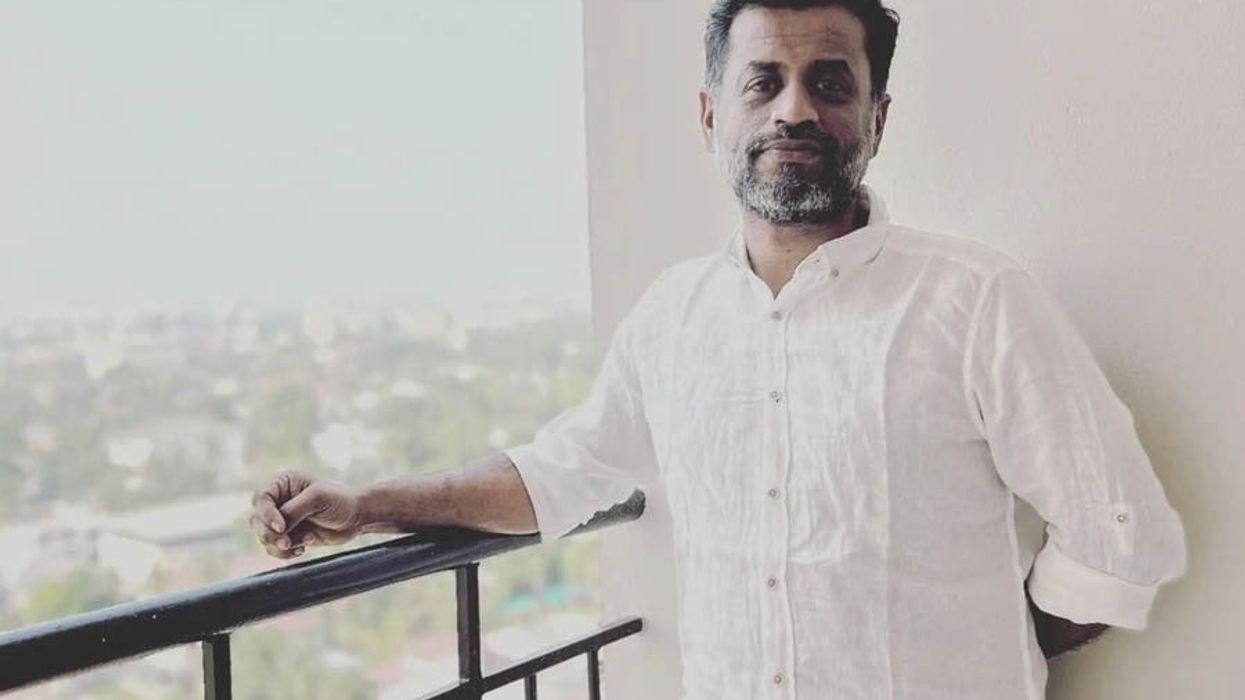It is a worrying trend that films in India today go through many forms of censorship, said Jeo Baby, whose recent film Kaathal – The Core shows Malayalam superstar Mammootty as a homosexual man, resetting the narrative of the gay community in popular cinema. The sensitive portrayal devoid of gay tropes – for long, the community has only been fodder for humour – won many hearts.
"But I'm afraid about what is happening in India right now. We are facing religious and political censoring. It is worrying not only for filmmakers, but all artists," Baby told PTI in an interview.
Censorship is not something new to Baby, a self-proclaimed problem-maker. In January 2021, when he was set to release his other critically acclaimed film, The Great Indian Kitchen, starring Nimisha Sajayan – which succinctly brought out how society stifles women and their freedom – Covid-19 restrictions made theatrical release impossible. But popular OTT platforms were not ready to touch the film, as the film also tackled a socio-political issue that was playing out at that time – menstruating women's entry into Sabarimala temple. He finally had to release the film on a Malayalam streaming platform, Neestram.
Luckily for Baby, just like Kaathal, The Great Indian Kitchen too captured people's hearts despite the heaviness of the subject. And all those trending hashtags forced the mainstream OTT platforms to review their decision. Finally, three months after its release, Amazon Prime got the rights to the film.
Baby said artists must stand firm for their creative freedom.
"...unfortunately, some people are giving in. Like the recent withdrawal of the film (Tamil film 'Annapoorani' was pulled off the OTT platform for hurting religious sentiments). In effect, they are accepting that they are doing a crime or something. That's not good for the cinema or the artist or the society," said Baby.
Overcoming challenges is part of the deal when one takes on the institution, said Baby.
"Back when I was a film student, the short film I made in 2007, Secret Minds, was about homosexual people. I was expelled from my film institute for that film," said Baby.
Ironically, 17 years later, a full-length feature film on the same subject brought him fans from across India, standing testimony to the fact that things change with time, something that artists can derive hope from, he added.
"There is no connection between the short film and Kaathal. Decriminalisation changed the status quo of the community in 2018. Kaathal is more about that. But since 2005, I have been studying a lot about this community. I read a lot about sexuality, about homosexual people, about LGBTQ+… I know they are normal people," said Baby.
And when an opportunity presented itself to showcase them as normal people, he took it gladly, said Baby.
"The film was well received, but a lot of people also criticised Mammootty, who has done a lot of hyper-masculine characters, for playing Matthew. The LGBTQ+ community is still facing a lot of issues in our country. But hopefully, looking at how people are accepting. Kaathal, maybe they will one day get to live a normal life," said Baby.
Although giving in to societal pressure is no option, Baby said there is no point either in rushing to the goalpost without a ball.
For instance, Baby said while he had been listening to many stories on the LGBTQ+ community for nearly two years, he was not convinced about anything before Kaathal.
"I know Kaathal was different because it is also about how innocent people suffer due to social conditioning and archaic laws. The content of the film made me confident, even though there were these niggling doubts about its acceptance. Fortunately for me, we have a wonderful audience in Kerala, who set the ball rolling," said Baby.




